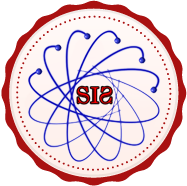Ethical Responsibilities and Duties of the Authors, Editors and Reviewers
- Publication Ethics
- Ethical Responsibilities of Authors
- Ethical Duties and Responsibilities of Editors
- Editors’ Relationships with Readers
- Editors’ Relations with the Authors
- Editors’ Relations with the Reviewers
- Editors’ Relations with the Journal Owner and the Publisher
- Publication of the Article
- Retention of Personal Data
- Ethics committee, Human and Animal Rights
- Protection of intellectual property rights
- Complaints to Editors
- Conflicts of interest and relations
- Ethical Responsibilities of Reviewers
Publication Ethics
Users of Turkish Journal of Inequalities (editors, authors, reviewers, department editors, readers) must obey to the ethical rules and responsibilities specified by Committee on Publication Ethics (COPE) that we have shared on our website. These ethical rules and responsibilities are summarized below.
Ethical Responsibilities of Authors
- Authors prepare and send their manuscripts in original form.
- The authors ensure that their citations and quotations in their manuscripts are accurate and complete.
- Authors should indicate and explain situations in which they may be involved in conflicts of interest.
- The editors, department editors or the reviewers can request raw data from the author of the manuscripts. Therefore, the author must keep the raw data of the article ready for submission.
- Ethical reports must be submitted by the author together with the article, when necessary.
- Authors are obliged to inform the journal authorities in case of any errors and inaccuracies about the article during any of the pre-control, evaluation, proofreading and publishing stages.
- One article cannot be processed in two different journals at the same time. Even if the overall process is completed in a journal and the article is rejected. In other words, an article published in another journal cannot be sent to Turkish Journal of Inequalities.
- In order to add an author, change the order of the authors or omit an author for an article on process for publishing on Turkish Journal of Inequalities, an application with the approval of all contributing authors is required. Journal management reviews the application and notifies the corresponding author about the decision.
Ethical Duties and Responsibilities of Editors
The editors of Turkish Journal of Inequalities should be obeyed to the ethical roles and responsibilities of “CODE OF CONDUCT AND BEST PRACTICE GUIDELINESFOR JOURNAL EDITORS” and “COPE BESTPRACTICE GUIDELINES FOR JOURNAL EDITORS” announced by Committee on Publication Ethics (COPE) and provided on our webpage. These duties and responsibilities are summarized below.
Editors’ Relationships with Readers
The editors are responsible for taking into account the feedback from the readers, researchers and practitioners about the published works and to provide the necessary responses and take necessary actions.
Editors’ Relations with the Reviewers
- The reviewers to be appointed must be selected from related area of the manuscript.
- The editor should make sure that there is no conflict of interest between the reviewers and the authors.
- The editor is responsible for guiding the reviewers during the article evaluation process and for providing the requested information.
- The editor is obliged to hide the credentials of the author and the reviewers by means of blind reviewing.
- The editor must make the necessary warnings to the reviewers about evaluating the article in a timely, impartial and scientific manner.
- The editor must make an effort to increase the number of reviewers.
Editors’ Relations with the Journal Owner and the Publisher
Editorial decisions should be independent of the journal owner and the publisher.
Publication of the Article
Editors are responsible for considering publishing principles, journal objectives and international standards in the articles to be published in the journal.
Retention of Personal Data
Editors are responsible for not transferring the personal information to third parties except for the consent of the authors.
Ethics committee, Human and Animal Rights
The editors are responsible for protecting the human and animal rights at about manuscript in the studies conducted on humans and animals. The editor is responsible for rejecting the article if ethics committee approval is not sent in the works that must provide ethics committee report.
Protection of intellectual property rights
Editors are responsible for protecting the intellectual property rights of all articles submitted and published in the journal.
Complaints to Editors
Editors are responsible for providing an open and enlightening answer to complaints from the reviewers, authors and readers.
Conflicts of interest and relations
Editors are responsible for taking action against conflicts of interest between authors, reviewers and third parties in order to complete the impartial and independent evaluation processes of the articles.
Ethical Responsibilities of Reviewers
- The reviewers are responsible for not evaluating the article if there is a conflict and relationship of interest.
- The reviewers are responsible for evaluating the article with due regard to the principles of confidentiality and impartiality.
- The reviewers cannot use the work sent to them for any purpose until the evaluation process is completed and issued.
- When evaluating the manuscripts, the reviewers are responsible for not allowing the gender, nationality, religious beliefs, or political views of the authors to have an influence on the evaluation.
- The reviewers should use gentle and constructive language when evaluating the article and should avoid insulting, defaming, and hostile comments and statements.
- The reviewers are responsible for evaluating the article in a timely and ethical manner.


